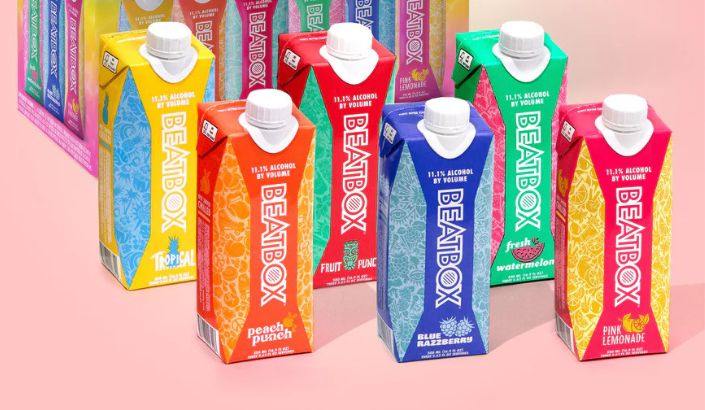Wine isn’t a drink that appeals to most millennials as some find its flavor too bland. Enter BeatBox Beverages, a line of wine products with unique tastes and packaging. The company featured on Shark Tank and the founders struck a deal with Mark Cuban. As of 2024, Beatbox Beverages is valued at $200 million.
The Founders
Three entrepreneurs made the pitch but there are five co-founders: Jason Schieck, Brad Schultz, Aimy Steadman, Daniel Singer, and Justin Fenchel.
Justin Fenchel started as a financial analyst and later became a serial entrepreneur. He did an MBA at McCombs School of Business with Aimy, Jason and Dan. The odd man out is Brad Schultz, who has a bachelor’s degree in marketing.
The Birth of BeatBox Beverages
BeatBox Beverages was launched in November 2011 as an alcoholic wine product that tasted more like vodka and Gatorade. The flavors are uncommon, and the drinks are placed in creative stereo-shaped boxes.
The co-founders bootstrapped the business with $55,000 and borrowed an additional $100,000 to fund its growth. The drinks became a huge hit, and within a year generated $200,000 in sales.
Shark Tank Pitch
Early success came through self-distribution, but to scale operations they needed a strategic partner. In 2014, Justin, Brad, and Aimy appeared on season six of Shark Tank, seeking $200,000 for a 10% equity stake.
The group made a strong start to the pitch and handed out samples to the Sharks. Kevin O’Leary, who considers himself a wine connoisseur, said it tasted bad, but the others disagreed.
Barbara was the first to make an offer, followed by Mr. Wonderful. Then, Mark Cuban said he was the best fit and proposed $600,000 for 33%. The founders countered with the same equity but for $1 million, and Cuban agreed. This was one of the biggest deals on the show at that time. Now the joint 10th largest-ever deal.
Sales After Shark Tank
Four months after the episode aired, Beatbox Beverages did $440,000 in sales. The publicity was a huge help and the company is continuing to grow exponentially. Their products are now available at over 65,000 retail locations including 7-11, Walmart, Kroger, Casey’s, and Circle K.
Beatbox has come a long way since Shark Tank. Revenue has grown from $1 million in 2017 to $18 million in 2021. The growth hasn’t slowed down, they were expecting to make $20 million for 2022 and co-founder Justin Fenchel was aiming to do $100 million by the end of 2023.
Despite the impressive growth, the business lost money pursuing growth over profits. The startup lost $4.2 million in 2019 and $3 million in 2020 but became profitable in 2021. They’ve also raised $15 million at a $200 million valuation through crowdfunding and investors such as Rob Dyrdek, Louis The Child, and Party Favor.
As the business expanded its range of drinks, it set up a new company called Future Proof LLC under which the BeatBox brand sits. Out of the five original co-founders, three remain. Daniel Sing left in 2013 and Jason Schieck left in 2021.
In an interview with Forbes, Mark Cuban rated Beatbox as one of his best Shark Tank deals along with Dude Wipes. On a cash basis, Mark hasn’t made a big return but his equity is worth significantly more.
